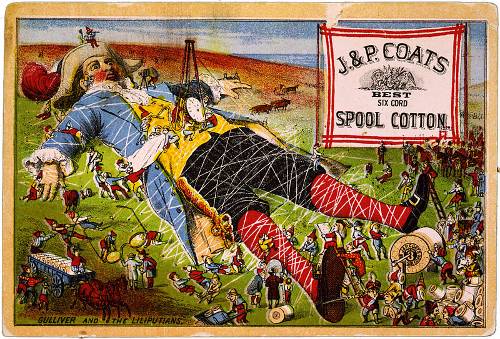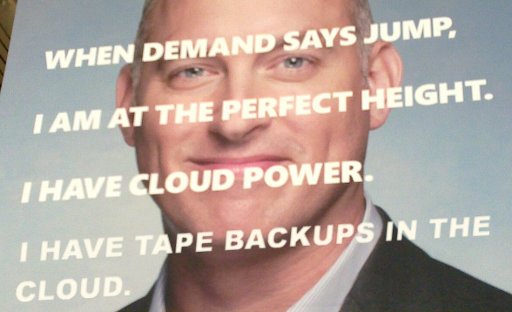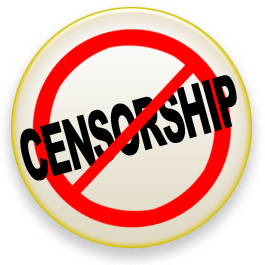For the past couple years there has been an article about me in English Wikipedia (archived version). It is an ok article. Some that I’d include isn’t, and some of what is seems kind of tangential, e.g., talking at a NASA event, that besides a citation, netted spending the day with an unholy mix of the usual social media suspects and entirely retrograde “we gotta put man humans into space because it makes me feel proud to be an American and my daughter might do her math homework!!!” boosters (get real: go robots!) and a sketch. However, overall it is fairly evocative, even the NASA event part. It would be uncool of me to edit it directly, and I’ve been curious to see how it would be improved, translated, vandalized, or deleted, so I haven’t made suggestions. It has mostly just sat there, though it has been curious to see the content copied in various places where Wikipedia content gets copied, and that a fair proportion of the people I meet note that I “have a Wikipedia page” — that’s kind of the wrong way to think about it (Wikipedia articles have subjects, not owners), but good to know that people can use web search (and that I can tend toward the pedantic).
!#@!@^% deletionists are ruining Wikipedia. They’ll be the first against the wall when the revolution comes.
— http://memesteading.com/2010/03/15/dialectical-inclusionism/
The one thing that I have said about the article about me on English Wikipedia, until now, has been this, on my (not precisely, but moreso “mine”) user page on English Wikipedia: “I am the subject of Mike Linksvayer, which I would strongly advocate deleting if I were a deletionist (be my guest).” I’ve thought about pulling some kind of stunt around this, for example, setting up a prediction market contract on whether the article about me would be deleted in a given timeframe, but never got around to it. Anyway, last week someone finally added an Articles for Deletion notice to the article, which sets up a process involving discussion of whether the article ought be deleted (crickets so far). When rough consensus is reached, an admin will delete the article, or the notice will be removed.
I’m not a fan of deletionism (more below), but given the current rules around notability, I am either somewhat questionable as an English Wikipedia article subject (using the general, easy to interpret charitably summary of notability: “A person is presumed to be notable if he or she has received significant coverage in reliable secondary sources that are independent of the subject.”) to unquestionably non-notable (any less charitable interpretation, which presumably any “deletionist” would use, thus my user page statement). The person who added the Articles for Deletion notice may not have done any research beyond what is already linked in the article (more on that general case below), but I must admit, his critique of the citations in the article, are fairly evocative, just as the article is:
We have three sources from Creative Commons (primary), a paragraph in a CNET news article where he does his job and encourages scientists to use CC licenses, one IHT article about veganism that mentions him for a couple of paragraphs, and a link to his Wikipedia userpage. That is not enough for notability, in my opinion.
The IHT (actually first in the NYT) article was about calorie restriction, not veganism, but that’s a nitpick. Most of the “media” items my name has appeared in are indeed about Creative Commons, i.e., me doing my job, not me as primary subject, or in a few cases, about calorie restriction, with me as a prop. Or they’re blogs — ok that one is even less notable than most blogs, but at least it’s funny, and relevant — and podcasts. The only item (apart from silly blog posts) that I’ve appeared in that I’m fond of and would be tickled if added as a reference if the current article about me squeaks by or some future article in the event I as a subject become a no-brainer (clearly I aim to, e.g., “[make] a widely recognized contribution that is part of the enduring historical record in his or her specific field”, but even more clearly I haven’t achieved this) is in Swedish (and is still about me doing my job, though perhaps going off-message): check out an English machine translation.
…
I’m not a fan of deletionism, largely because, as I’ve stated many times, thinking of Wikipedias as encyclopedias doesn’t do the former justice — Wikipedia has exploded the “encyclopedia” category, and that’s a wonderful thing. Wikipedias (and other Wikimedia projects, and projects elsewhere with WikiNature) need to go much further if freedom is to win — but I’m partisan in this, and can appreciate that others appreciate the idea that Wikipedias stick close to the category defined by print encyclopedias, including strong limits on what might be considered encyclopedic.
It also strikes me that if Wikimedia movement priorities include increasing readership and participation that inclusionism is the way to go — greatly increase the scope of material people can find and participate in building. However, I’m not saying anything remotely new — see Deletionism and inclusionism in Wikipedia.
Although I’m “not a fan” I don’t really know how big of a problem deletionism is. In my limited experience, dealing with an Articles for Deletion notice on an article I’ve contributed to is a pain, sometimes motivates substantially improving the article in question, and is generally a bummer when a useful, factual article is deleted — but it isn’t a huge part of the English Wikipedia editing experience.
Furthermore, reading guidelines on notability closely again, they’re more reasonable than I recall — that is, very reasonable, just not the radical inclusionism I prefer. To the extent that deletionism is a problem, my guess now is that it could be mitigated by following the guidelines more closely, not loosening them — start with adding a {{notability}} tag, not an Articles for Deletion notice, ask for advice on finding good sources, and make a good faith effort to find good sources — especially for contemporary subjects, it’s really simple with news/web/scholar/book/video search from Google and near peers. I’m sure this is done in the vast majority of cases — still, in the occasional case when it isn’t done, and initial attempts to find sources and improve an article are being made during an Articles for Deletion discussion, is kind of annoying.
…
I also wrote some time ago when thinking about notability the not-to-be-taken-very-seriously Article of the Unknown Notable, which I should probably move elsewhere.
…
The delicious “dialectical inclusionism” quote above is from Gordon Mohr. Coincidentally, today he announced ∞³, a project “to create an avowedly inclusionist complement to Wikipedia”. There’s much smartness in his post, and this one is already long, so I’m going to quote the entire thing:
Introducing Infinithree (“∞³â€)
Wikipedia deletionism is like the weather: people complain, but nobody is doing anything about it.
I’d like to change that, working with others to create an avowedly inclusionist complement to Wikipedia, launching in 2011. My code name for this project is ‘Infinithree’ (‘∞³’), and this blog exists to collaborate on its creation.
Why, you may ask?
I’ll explain more in future posts – but in a nutshell, I believe deletionism erases true & useful reference knowledge, drives away contributors, and surrenders key topics to cynical spammy web content mills.
If you can already appreciate the value and urgency of this sort of project, I’m looking for you. Here are the broad outlines of my working assumptions:
Infinithree will use the same open license and a similar anyone-can-edit wiki model as Wikipedia, but will discard ‘notability’ and other ‘encyclopedic’ standards in favor of ‘true and useful’.
Infinithree is not a fork and won’t simply redeploy MediaWiki software with inclusionist groundrules. That’s been tried a few times, and has been moribund each time. Negative allelopathy from Wikipedia itself dooms any almost-but-not-quite-Wikipedia; a new effort must set down its roots farther afield.
Infinithree will use participatory designs from the social web, rather than wikibureacracy, to accrete reliable knowledge. Think StackOverflow or Quora, but creating declarative reference content, rather than interrogative transcripts.
Sound interesting? Can you help? Please let me know what you think, retweet liberally, and refer others who may be interested.
For updates, follow @_infinithree on Twitter (note the leading underscore) or @infinithree on Identi.ca.
Infinithree is already very interesting as a concept, and I’m confident in Gordon’s ability to make it non-vapor and extremely interesting (I was one of his co-founders at the early open content/data/mass collaboration service Bitzi — 10 years ago, hard to believe). There is ample opportunity to try different mass collaboration arrangements to create free knowledge. Many have thought about how to tweak Wikipedia culture or software to produce different outcomes, or merely to experiment (I admit that too much of my plodding pondering on the matter involves the public domain↔strong copyleft dimension). I’m glad that Gordon intends ∞³ to be different enough from Wikipedia such that more of the vast unexplored terrain gets mapped, and hopefully exploited. As far as I know Freebase is probably the most relevant attempt so far. May there be many more.



